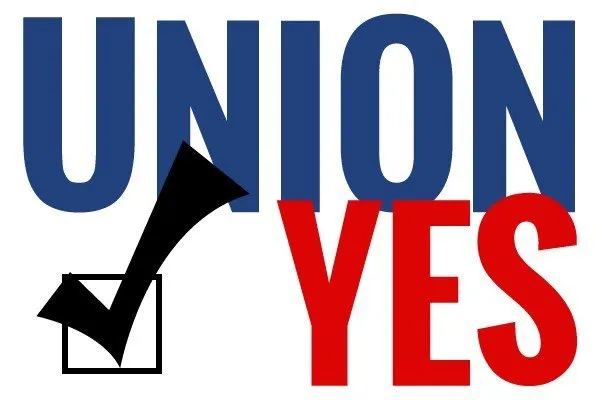The AFL-CIO’s annual Dr. Martin Luther King Jr. Civil and Human Rights Conference began on Friday “at a crucial moment for the labor and civil rights movements, as workers across the country are organizing at historic rates for dignity, respect and justice, both on the job and in our communities,” says the AFL-CIO.
“We are facing unprecedented attacks on our rights from politicians and judges who would rather put the interests of corporations over the needs of working people.” The movements came “together not only to strengthen the bond between our two movements, but also to reignite our shared commitment to democracy and winning racial and economic justice for all.”
King saw the labor and civil rights movements as natural allies. In 1968, he was assassinated in Memphis where he had gone to stand in solidarity with striking sanitation workers who had joined the American Federation of State, County and Municipal Employees. He would have been 95 on Monday.
“Our needs are identical with labor’s needs — decent wages, fair working conditions, livable housing, old age security, health and welfare measures, conditions in which families can grow, have education for their children and respect in the community,” he told the 1961 AFL-CIO convention. “That is why Negroes support labor’s demands and fight laws which curb labor. That is why the labor-hater and labor-baiter is virtually always a twin-headed creature spewing anti-Negro epithets from one mouth and anti-labor propaganda from the other mouth.”
Shelly Baskin of Murray, Ky., southeast operations coordinator for the United Campus Workers, is one of thousands of grassroots trade union leaders nationwide who are organizing workers “for dignity, respect, and justice, both on the job and in our communities.”
He won’t be at the conference, which is meeting in Montgomery, Ala., through Sunday. On Monday, the MLK Day holiday, he’ll be part of a Murray program featuring “Ghosts of a Lost Cause,” a documentary about a “battle to relocate a Confederate monument during the Black Lives Matter movement,” according to the Southern Poverty Law Center, a co-sponsor of the program. Click here for more information and here to buy tickets.
“Racial justice, economic justice, social justice – all of those are deeply entwined,” said Baskin, a former Murray State University public radio reporter and research administrator. “You can’t have one without the others.”
In a 1962 letter to the Amalgamated Laundry Workers, King wrote, “As I have said many times, and believe with all my heart, the coalition that can have the greatest impact in the struggle for human dignity here in America is that of the Negro and the forces of labor, because their fortunes are so closely intertwined.”
Baskin added that the labor movement “is fighting for people’s rights to have economic freedom – to have a job that gives them the ability to make a living wage, gives them freedom from employer retaliation and has safety rules that enable them to go home safe at night. Unions support the individual but as a group.”
Baskin helped lead a local protest movement against the 1917-vintage stone memorial. Paid for by the United Daughters of the Confederacy, the monument is topped by a 5½-foot statue of Robert E. Lee, the Confederacy’s most famous general. Originally, the monument included a whites-only drinking fountain.
The memorial “represents a distorted, bloody and awful past that we cannot forget but should not celebrate,” said Murray State University historian Brian Clardy, a UCW member who is also part of the MLK Day program.
“I can’t think of any of my fellow UCW members who are not in some way involved in community organizations,” Baskin said. “Unions are very much a part of the social justice movement, too.”
The UCW, headquartered in Atlanta, is affiliated with the Communications Workers of America. Baskin helped organize the Murray State Chapter of United Campus Workers of Kentucky which the group’s website says “is the wall-to-wall campus and public healthcare employees union for the Commonwealth of Kentucky representing faculty, staff, graduate and undergraduate workers. Together, we are fighting for public institutions that truly serve the public good.” Prospective members can register online or contact the union for a paper form.
The Steering Committee can be reached via email at ucwkentucky@gmail.com.
“Union members help people whether on the shop floor or out in the community,” Baskin said.
--30--








